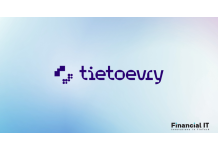Tandem Unveils New Portfolio Cash ISA – Smarter,...
- 28.11.2025 09:15 am
Metro Bank Opens New Store in Salford Quays
- 26.11.2025 03:05 pm
TD Expands Access to Affordable Everyday Banking for...
- 26.11.2025 02:55 pm
Kraken Expands Krak Offering to Challenge Legacy...
- 26.11.2025 09:45 am
Tuum Secures Strategic Partnership Extension With...
- 26.11.2025 09:30 am
FIS Powers German Auto Bank’s Digital Transformation,...
- 25.11.2025 01:25 pm
DNB Extends Partnership With Tietoevry Banking to...
- 24.11.2025 11:05 am
Finom Launches Premium Business Cards for Growing SMEs
- 24.11.2025 08:55 am
Monzo Races Past 14 Million Customers Amid Record...
- 21.11.2025 10:45 am
Banco de Chile Bolsters FX Operations With Integral...
- 20.11.2025 10:25 am
Adyen Partners With Travel Ledger to Launch Integrated...
- 19.11.2025 12:20 pm
Alkami and Spiral Partner to Power Personalized...
- 19.11.2025 08:05 am






















